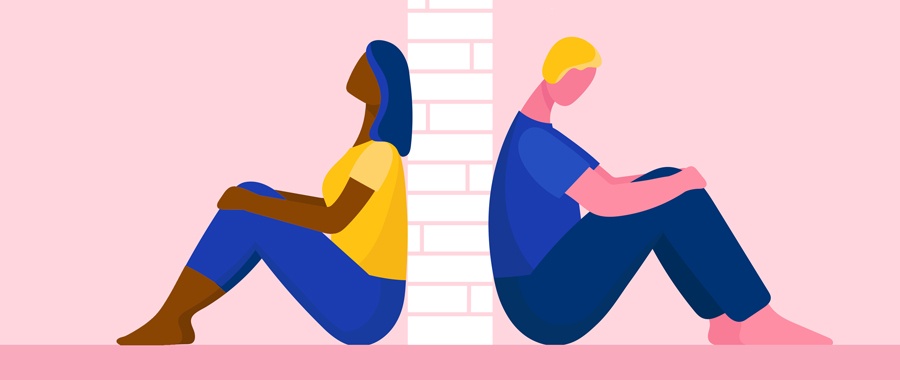In a world characterized by rapid change and increasing polarization, the phenomenon of cut-off culture has emerged as a compelling challenge. Have you ever found yourself distancing from friends or family because of a disagreement or misunderstanding? This habit, often subconscious, can lead to a fractured existence where we prioritize emotional safety over reconciliation. The Baha’i teachings present a profound pathway to address such conflicts through the lens of forgiveness and unity, urging followers to embrace relationships with compassion and understanding.
In contemplating the essence of forgiveness within the Baha’i framework, it is essential to understand its multifaceted dimensions. Forgiveness is not merely the act of overlooking a wrong; it is also about fostering a spirit of love and acceptance that promotes healing and reconciliation. The Baha’i perspective posits that forgiveness is an intrinsic part of the human experience, essential for the evolution of both the individual and society at large.
To embark on this journey of unlearning cut-off culture, one must first recognize the perils of emotional withdrawal. The instinct to sever ties with those who have wronged or disappointed us can create an illusion of safety. However, such actions often lead to emotional isolation and a perpetuation of conflict. Baha’is believe that true progress lies in treating others with dignity, even amidst discord. This principle encourages a pivot from retribution to empathy.
Understanding one’s emotions is the cornerstone of forgiveness. Baha’is emphasize self-reflection as a means to discern underlying feelings that contribute to the desire to sever connections. Engaging in personal introspection allows individuals to identify pain, resentment, or misunderstandings that may be driving them toward cut-off behavior. This recognition is the first step toward healing, illuminating the internal conflicts that require personal resolution before external reconciliation can occur.
The Baha’i teachings advocate for the practice of compassion—an essential element in facilitating forgiveness. Practicing compassion involves perceiving the humanity in others, even those who have caused us distress. This perspective shift encourages individuals to remember that everyone is susceptible to making mistakes, shaped by their unique experiences and challenges. By nurturing this attitude, one can alleviate the burden of grievance and open the door to forgiveness.
Moreover, the act of forgiveness is intertwined with the recognition of the interconnectedness of humanity. Baha’is believe that all individuals are part of a larger tapestry; severing ties with one person can create ripples that affect the community at large. Understanding the ripple effect of our actions encourages a recognition of our collective responsibility to foster unity rather than division. This holistic view propels individuals toward reconciliation, as they begin to appreciate the broader implications of their choices.
Another key element in the journey of unlearning cut-off culture is the practice of dialogue. Open communication can bridge gaps created by misunderstanding or conflict. Baha’is are encouraged to engage in candid discussions, expressing their feelings and perspectives while also actively listening to others. Such dialogue is not only about articulating one’s standpoint but also about forming a genuine connection through shared narratives.
This is where the transformative power of love becomes paramount. The Baha’i teachings emphasize love as the fundamental principle of relationships—an unconditional force that transcends disagreements. By cultivating love, individuals can navigate the complexities of interpersonal dynamics with more grace and understanding. Love challenges the inevitability of conflict and encourages resolution through coexistence and respect. It serves as a reminder that, beyond our differences, we are inherently united in our human essence.
In practicing forgiveness, it is also essential to establish boundaries, which many may misconstrue as the antithesis of forgiveness. However, establishing limits can be an act of self-love, protecting oneself from repeated harm while encouraging growth in relationships. Baha’is value the need for balanced interactions where mutual respect prevails. Compassionate boundaries allow for personal well-being without endorsing cut-off culture, enabling individuals to uphold dignity while still nurturing connections.
Forgiveness is a gradual process—it is not a one-time occurrence but rather an ongoing journey requiring patience and persistence. The Baha’i teachings remind followers that this path is marked by trial and error. Initial attempts to forgive might be met with setbacks, but it is essential to remain committed to the process. Each effort contributes to a deeper understanding and an enriched capacity for empathy, fostering resilience in the face of conflict.
As one progresses on this transformative journey, modeling forgiveness in one’s community becomes vital. Engaging with others through the practice of forgiveness not only personalizes the experience but also inspires a ripple effect that may encourage others to unlearn cut-off culture as well. Collectively, a community that embraces forgiveness fosters a culture of compassion, ultimately enhancing social harmony and mutual respect.
In conclusion, unlearning cut-off culture is a profound undertaking that calls upon individuals to embrace the principles of forgiveness as outlined in the Baha’i teachings. By focusing on self-awareness, compassion, dialogue, and love, adherents can cultivate a more fulfilling and cohesive existence. The challenge lies not only in the act of forgiving but in creating an environment where forgiveness is valued and practiced, highlighting the beauty of our interconnectedness in this human experience. Through such commitment, individuals will find an enriched life characterized by understanding, empathy, and enduring relationships.
